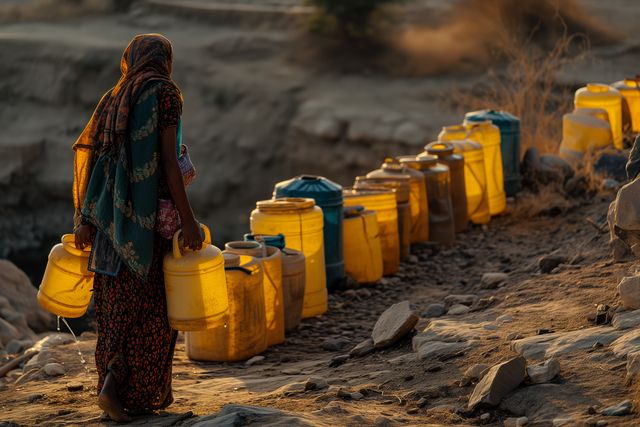The latest UN report underscores the urgent need for global cooperation on water resources to prevent conflicts and aid vulnerable populations
In the face of a growing water scarcity crisis exacerbated by climate change, pollution, and overuse of resources, the UN has released its annual World Water Development Report, stressing the disproportionate impact on women and girls in poor and rural areas. The report urges countries worldwide to prioritize gender-sensitive water strategies and enhance collaboration to address the roots of water-related conflicts.
According to the UN, water crisis is not only a major source of conflict but also significantly affects women and girls, who are primarily responsible for water collection in many communities. The lack of access to safe water and sanitation facilities has severe implications for their education, health, and overall vulnerability. Audrey Azoulay, director general of Unesco, emphasized the need for swift action to safeguard water resources and promote peace through regional and global cooperation.
Embed from Getty ImagesConflicts over water, such as those between Israel and Hamas in Gaza, highlight how water access can become a critical issue, with accusations of “weaponising” water supplies exacerbating tensions. The report advocates for the inclusion of water cooperation in peace strategies, suggesting that equitable and sustainable management of water can foster peace and prosperity.
Despite the critical role of water in conflicts, the report notes that disputes often arise from factors like demand exceeding supply, pollution, and restricted access. It calls for adherence to international humanitarian law, which prohibits targeting civilian water infrastructure, and recommends using agreements over shared waters and human rights-based approaches to promote peace.
The report also highlights the global challenge of water scarcity, with nearly half the world’s population lacking access to hygienic sanitation and about 2.2 billion people without a safe drinking water supply. It warns that without significant progress, water shortages are likely to worsen, with demand expected to outstrip supply by 40% by 2030.
Rick Connor, the report’s editor-in-chief, pointed out the need for international cooperation to resolve disputes and mitigate the impacts of water shortages, including forced migration and food insecurity. The UN’s focus on improving the lives of women and girls through better water management reflects a broader effort to address the multifaceted challenges posed by the global water crisis.
